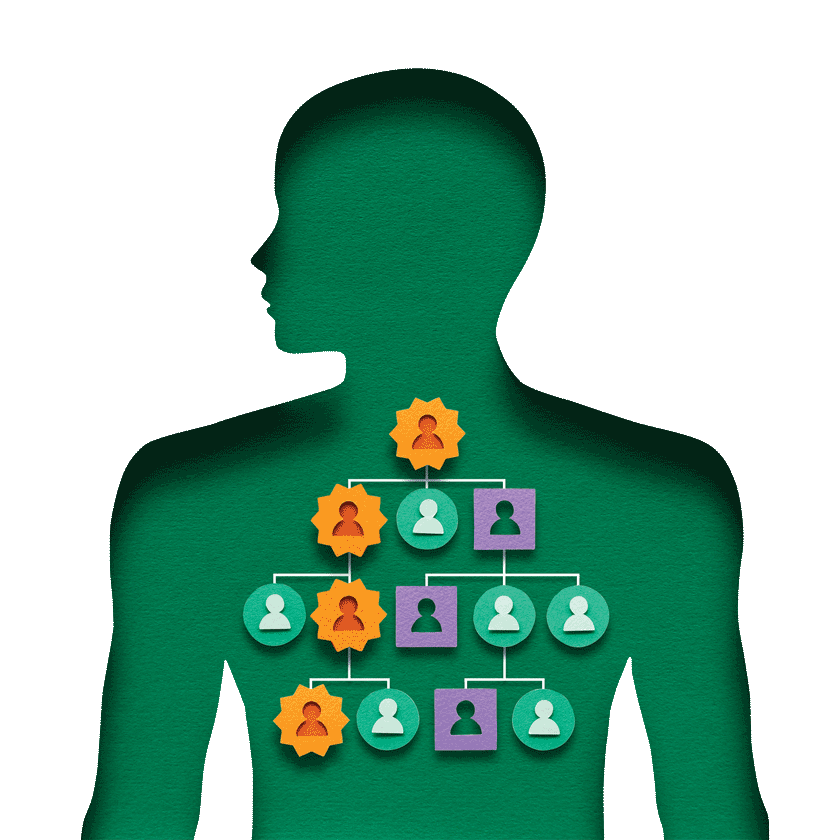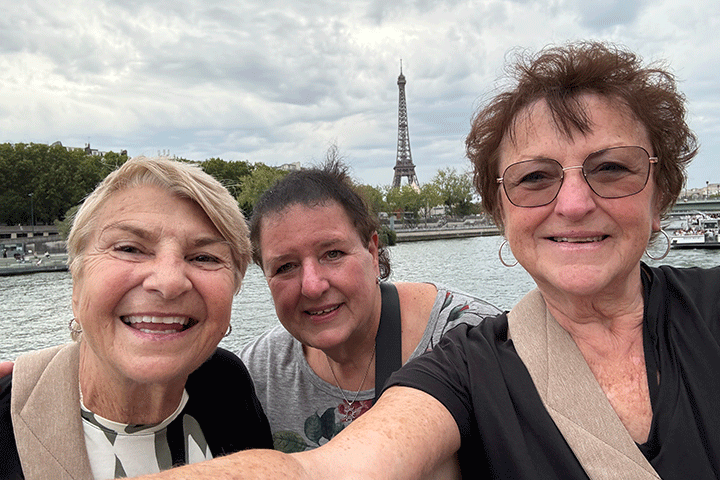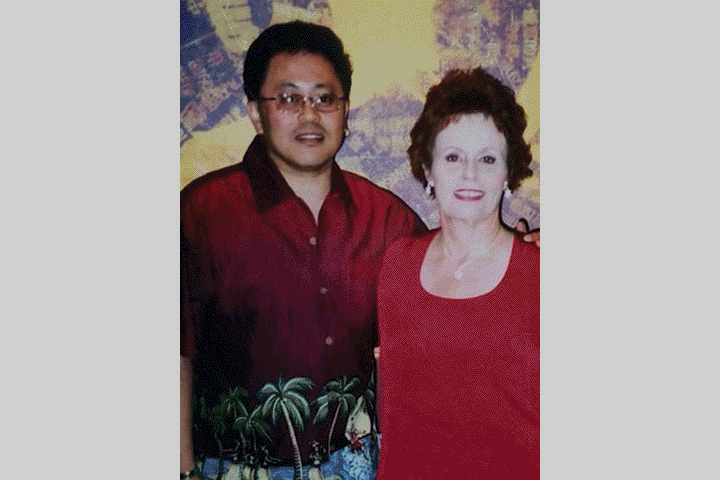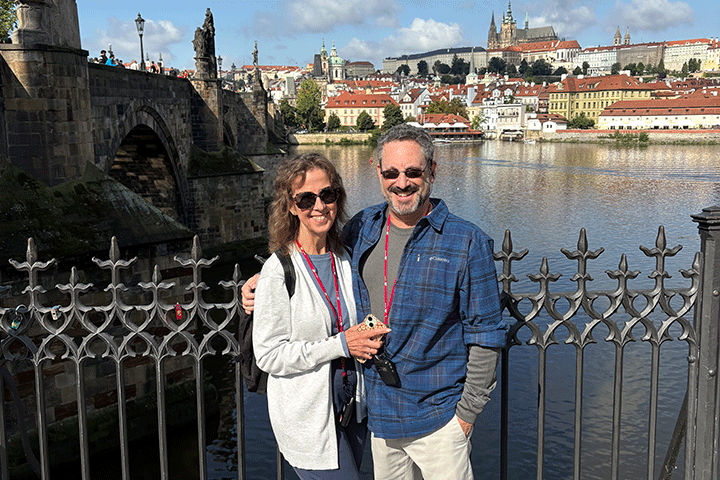Living with Pancreatic Cancer as a Long-Term Survivor
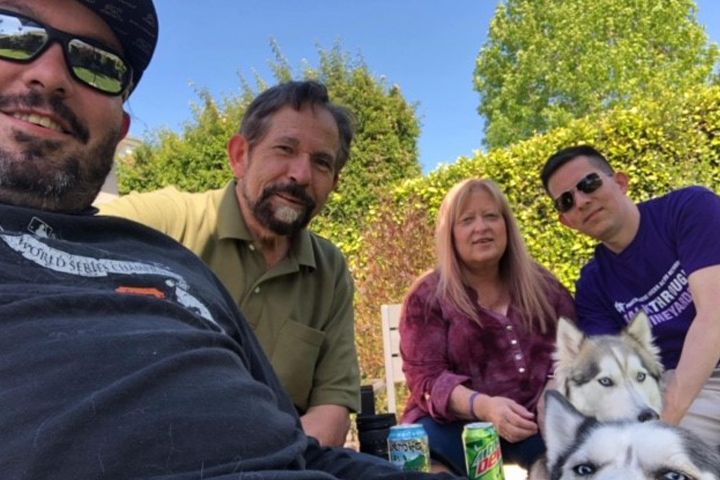
- Grandmother, father, and uncle all had pancreatic cancer
- Diagnosis at a relatively young age
- Many treatments over the years including clinical trials and case studies
I am a 15-year pancreatic cancer survivor, but the disease has been a big part of my life for much longer.
I first learned about pancreatic cancer in 1998, when my father was diagnosed with the disease. He died two months later. It was then that I learned that my grandmother had died from the same disease! Four years later my father’s brother lost his life to pancreatic cancer. And on April 1, 2002, I was diagnosed with the disease.
I had been having vague symptoms of nausea and diarrhea, but because I was in my mid-40s, my doctors thought I was too young to have pancreatic cancer. They also told me it was not hereditary. I was told I probably had an ulcer. But I knew my family history, so I fought to be tested for pancreatic cancer. Sure enough, a tumor was found. But because of its location, the tumor was inoperable.
The Start of Many Treatments
At this point, my medical history became very important—one of my kidneys was removed when I was three years old. But many of the chemotherapy drugs used to fight pancreatic cancer have unknown side effects on the kidneys, so the best course of action for me was to be monitored by a nephrologist (a kidney doctor) who specializes in renal cancer; this doctor was guided by a pancreatic cancer oncologist. My doctor deeply believes that patients should see an oncologist who specializes in the type of cancer they have.
My medical team started me on a clinical trial using 5-FU and gemcitabine, with radiation a month after starting the chemotherapy. But the radiation treatments caused my kidney to fail, so I had to stop treatment to let my kidney recuperate. During that time I looked into holistic medicine, and changed my diet and added supplements until I was able to restart standard medical treatment.
Over the years I have been treated with a number of different drugs, including FOLFIRINOX, gemcitabine, Abraxane, and Tarceva. I have not been able to do other trials, although I have participated in some case studies.
In 2005, I had just finished treatment with 5-FU and gemcitabine when my family received more shocking news—my mother was diagnosed with a pancreatic neuroendocrine tumor, the rarer type of pancreatic cancer. She survived for eight years after diagnosis.
I see a variety of doctors: a nephrologist for my kidney, along with an oncologist and a kidney oncologist. Although my cancer is contained in the pancreas, with no evidence of cancer in the kidney, the kidney oncologist is consulted for side effects that chemo can have on the kidney. I am closely monitored, with regular blood work including a monthly CA 19-9 test, a weekly urine test to watch for kidney/bladder infections, and regular MRI and PET scans to monitor the tumor. I continue to have treatment with Tarceva, and recently finished a course of gemcitabine and Abraxane.
Life with Pancreatic Cancer
When I was first diagnosed, tumor profiling wasn’t done or I wasn’t given the option—I am not sure. I have not had it done—my doctor does not want to go in and take a sample because of the location of my tumor. I underwent genetic testing years ago and was told it was inconclusive, but the tests have become more advanced and I am looking into getting it done again. Because of my kidney situation I continue to be monitored by a renal oncologist.
Because of the impact pancreatic cancer has had on my life, I volunteer with the Orange County Affiliate of Pancreatic Cancer Action Network (PanCAN) as the Mission Chair. My focus is to educate the public and healthcare professionals, continue advocacy efforts, and encourage caregiver and survivor engagement.
I’m a member of the Survivor Council. The Survivor Council is a group of volunteers created to ensure the survivors’ voices, experience, and expertise are integrated into PanCAN’s programs and initiatives.
I’m also a member of the Survivor & Caregiver Network, which is made up of pancreatic cancer survivors and caregivers who are available to talk one-on-one with those diagnosed with pancreatic cancer, their loved ones, or anyone looking to connect with someone who has experienced pancreatic cancer.
I also co-chair PurpleStride Orange County with my husband, Vic. PurpleStride is a 5K walk to end pancreatic cancer, PanCAN’s signature awareness and fundraising event. This year was our 10th anniversary! We had approximately 2,000 participants, which included 50 survivors, so far raising $240,000!
Most importantly, I am going to keep on fighting this disease any way I can.
Roberta is one of our long-term survivors. Watch her video to learn more.



